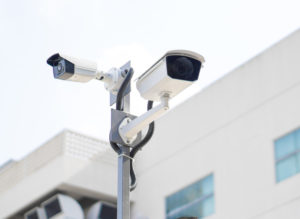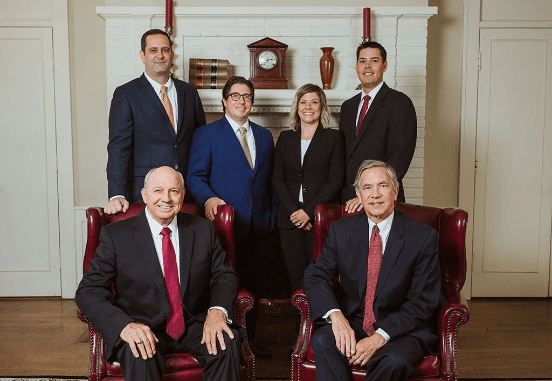 If you’ve been involved in a car accident in Florida, you may be wondering if you can request surveillance camera footage to help prove what happened. The short answer is yes, you can request surveillance camera footage after your car crash in Florida. However, there are a few important things you should know before you make that request.
If you’ve been involved in a car accident in Florida, you may be wondering if you can request surveillance camera footage to help prove what happened. The short answer is yes, you can request surveillance camera footage after your car crash in Florida. However, there are a few important things you should know before you make that request.
At Wooten, Kimbrough, Damaso, and Dennis, P.A., we understand the confusion and concerns that come with dealing with a car crash. We can answer any questions you may have about requesting surveillance camera footage and how it can help your case.
Why Is Video Evidence Important in a Florida Car Accident?
Video evidence from surveillance cameras can be tremendously helpful in a car accident case. It can provide an independent, unbiased look at what happened and establish liability for the accident. This is especially true if you have conflicting accounts of what happened or are facing false accusations about your role in the crash. Surveillance camera footage provides a reliable record of events that can be used to accurately determine who was at fault.
Additionally, surveillance camera footage can help prove the severity of your injuries and how they were caused by the car crash. This evidence can be invaluable when it comes to getting a fair settlement from an insurance company or defending yourself against liability in court.
Where Are Surveillance Cameras Most Likely to Be Found?
First and foremost, it’s important to understand that surveillance camera footage is not always available. Many businesses and public buildings in Florida have surveillance cameras, but not all of them do. Even if there is surveillance footage of your accident, it may not have been saved or it may have been overwritten by new footage.
So, while it’s definitely worth asking for surveillance footage, you shouldn’t rely on it as your only piece of evidence. If you do want to request surveillance camera footage after your Florida car crash, you’ll need to do a few things.
Identifying the Locations of Surveillance Cameras Near the Accident Scene
Not all cameras that may be present in the vicinity will be easily identifiable. As a standard, surveillance cameras are designed to blend in or be hidden from the average observer. Thus, you may need a bit of help in determining which cameras were present and where they are located.
Common areas to look for cameras include:
- Businesses or public buildings near the accident scene
- On poles or posts outside of businesses
- On traffic signals and street lamps
Typically, if you can make out the camera or its location on a nearby building, then you may be able to submit a request directly to that organization for footage from their surveillance camera.
Requesting Surveillance Camera Footage From Building Occupants
Once you’ve identified the location of the surveillance cameras, you’ll need to contact the owner of the cameras and ask them for the footage. This may be a business owner, a property manager, or a government agency.
Whoever it is, you’ll need to explain why you’re requesting the footage and provide them with some basic information, such as the date and time of your accident. It’s also important to keep in mind that surveillance camera footage is considered private property.
This means that the owner of the camera has the right to refuse your request for footage. They may do this for a variety of reasons, such as to protect the privacy of their customers or employees. If the owner of the surveillance cameras refuses your request, you may need to seek legal advice to determine if there are any other options available to you.
Requesting Surveillance Camera Footage From a Local Police Department
In some instances, you may be able to get footage from a nearby police department. Police departments often have surveillance cameras installed in public areas and they can provide you with footage if it is available.
But keep in mind that obtaining surveillance camera footage from a police department is not always easy. You’ll need to make a formal request for the footage and then wait for the department to respond. In some instances, the police may not be able to provide you with the footage at all.
Can I Use My Dashcam Footage as Evidence?
Yes, you can use your dashcam footage as evidence in a Florida car accident claim. Dashcam footage is considered to be reliable and admissible in court, so it can help establish who was at fault in an accident.
However, keep in mind that only certain kinds of dashcam footage will be accepted by the court. Generally, the footage must be clear and show the details of the accident in order for it to be accepted as evidence. In addition, you will need to provide proof that your dashcam was functioning properly at the time of the accident.
Using Surveillance Camera Footage in Your Car Crash Case
If you do get your hands on surveillance camera footage from a business or police department, it can be a powerful piece of evidence in your car crash case. Footage from surveillance cameras can help prove that another driver was at fault or that they were negligent in some way.
But keep in mind that surveillance camera footage will not always be the deciding factor in your case. In many cases, it’s just one piece of evidence among many and it may not be enough to win your case on its own.
Can the Video Be Challenged by the Defense?
Yes, the video can be challenged by the defense. Just like any other piece of evidence, surveillance camera footage can be questioned and disputed in court. The defense may try to challenge the accuracy or reliability of the footage or argue that it’s not a true representation of what actually happened.
It’s important to remember that even if you have surveillance camera footage, your accident claim may still need to be supported by other forms of evidence such as witness testimony and medical records. Having this additional evidence will help you make a stronger case for yourself in court.
Get Help From the Skilled Florida Car Crash Lawyers at Wooten, Kimbrough, Damaso, and Dennis, P.A.
In the end, it’s important to remember that surveillance camera footage is just one piece of evidence that can help prove what happened in your Florida car crash. To get the best possible outcome, it’s always a good idea to hire a lawyer who has experience handling car accident cases in Florida. This is especially true if you’ve been injured in the accident and are seeking compensation for your injuries and other damages.
At Wooten, Kimbrough, Damaso, and Dennis, P.A., our attorneys have a track record of success in helping car accident victims in Florida. We understand the laws and regulations surrounding car accidents in the state, and we know how to navigate the legal process to get our clients the best possible outcome. If you’re in need of legal help after a car accident in Florida, don’t hesitate to fill out our contact form or call us at (407) 843-7060 to schedule a free consultation.
Frequently Asked Question
Can you request surveillance footage after a car accident in Florida?
Yes, you can request surveillance footage after a car accident in Florida. This footage can provide critical evidence about the events leading to the accident, including identifying fault and confirming the severity of injuries. However, as surveillance footage is considered private property, the property owner or entity controlling the security cameras has the right to deny your request. Consulting a lawyer may be necessary if your request is refused.
How can surveillance footage support my car accident claim?
Surveillance footage can serve as unbiased evidence in a car accident claim. It can clarify what happened during the accident, establish liability, and counter false allegations. Additionally, it can confirm the extent and cause of injuries sustained. Security camera footage from nearby businesses, traffic signals, or public spaces can strengthen your case, especially if witness testimony is limited.
What steps should I take to request security camera footage from a property owner?
To request footage from a property owner, first identify nearby cameras. Then, contact the property owner, business manager, or agency controlling the security cameras. Provide details like the accident date, time, and location. Be respectful, as owners are not obligated to release footage without a valid reason. Legal assistance might help if your request is denied.
What challenges might arise when obtaining surveillance footage after a car accident?
Challenges include identifying camera locations, ensuring the footage wasn’t overwritten, and gaining cooperation from the property owner. Additionally, some security cameras may be privately owned or inaccessible without a legal order. Police departments may have footage, but acquiring it can involve formal requests and long waiting periods.
Is dashcam video footage treated the same as surveillance footage in a car accident case?
Dashcam video footage can be used similarly to surveillance footage in a car accident case. Both types of video provide visual evidence of the incident. However, for dashcam footage to be admissible in court, it must clearly show the events of the accident and come from a properly functioning device. Unlike surveillance footage, dashcam footage is typically easier to access since it’s your personal property.

Legally Written and Reviewed by a Managing Partner
Wooten, Kimbrough, Damaso, and Dennis, P.A.
Our content is written and reviewed by our founding attorneys Butch Wooten, Orman Kimbrough, Mike Damaso, and Tom Dennis. Helping the injured since 1966, they’ve successfully handled thousands of personal injury cases across Florida. Whether you’re a Florida resident or an out-of-state visitor injured in Florida, we’re dedicated to providing clear and reliable information to help you navigate your legal options confidently.




